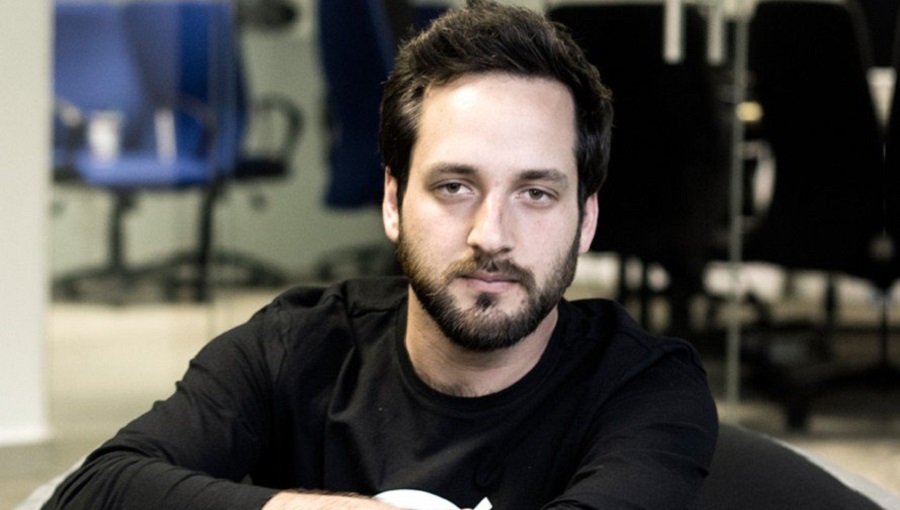RIO DE JANEIRO, BRAZIL – Mexican chat sales startup Yalo continues to team up with big techs in order to grow. The company received a US$50 million investment in May in an investment round led by Brazilian Eduardo Saverin, co-founder of Facebook.
Founded in 2016 by entrepreneur Javier Mata, the company was the first in Latin America to receive an investment from B Capital Group, a fund founded by Brazilian billionaire Eduardo Saverin, one of Facebook’s co-founders.

One month after raising US$50 million to finance its international expansion, the startup announced it is joining forces with WhatsApp to develop tools to simplify and boost sales through chat apps.
Yalo specializes in this market, dubbed chat commerce. It helps over 1,000 companies in 41 countries to promote salel and services through apps like WhatsApp, Messenger and Telegram.
In Brazil, for instance, Coca-Cola uses the tool to communicate with 500,000 merchants to process product order requests – a job that used to be done manually by phone attendants.
What’s new is that now the startup will be able to work alongside WhatsApp to develop its own e-commerce tools for the messaging environment. Founder Javier Mata says that approaching the app opens paths for the company to explore new products and customer profiles.
“We will now be able to build tools like buttons and catalogs on the WhatsApp platform, which will render the end-customer experience more fluid,” Mata says.
This ease of integration with WhatsApp will enable the startup to launch a “self service” integration model with client companies. Currently, the company focuses on large accounts and provides its own customer service for them to begin using the sales automation platform.
In the new format, smaller businesses, with a leaner product catalog, will be able to register directly with Yalo to use the services on WhatsApp. For the startup, it is a chance to bring new profiles and increase its customer base.
Mata is also excited about the marketing prospects opening up with a greater integration with WhatsApp. The model, which should begin to be used by the startup’s client companies in the coming months, will allow consumers to register in the e-commerce store and receive news about products and offers directly through the messaging app – if there is an interest in buying, transactions can be completed through the chat app.
“With the changes, we hope to have five times the amount of daily messages we currently have in 6 months,” the founder says.
In addition to the new tools, the startup is also working on its international expansion: the goal is to increase the product’s presence in Latin America and Southeast Asia. “We continue to increase our team in Brazil and Mexico, we are looking for new partners in Central America and India, and we should soon finalize an acquisition in Asia,” Mata says.
There is plenty of room to grow. According to a BCG study, the chat commerce market currently moves US$35 billion per year in emerging markets and could reach US$130 billion by 2025.
The post-pandemic retail
For WhatsApp, working with startups like Yalo is a way to fast-track the adoption of chat commerce on its platform. Last month, the company announced a partnership with Curitiba-based startup Omnichat, a Yalo competitor.
Message-based shopping and financial transactions could be a way to monetize the app, which has been looking to define a business model since it was acquired by Facebook in 2014 for US$22 billion.
The timing couldn’t be better for the chat commerce market. Since the pandemic began, consumers have switched from shopping on the street to the internet: in Brazil, 13 million people made their first online purchase in 2020, according to research by Nielsen consultancy.
It didn’t take long for messaging apps, used by 92% of Brazilians, to be adopted also by traders and service providers. A survey by Accenture consultancy in July 2020 showed that 83% of Brazilians now use WhatsApp to make purchases – and 37% of them consume products from large companies.
In small businesses, the prevalence is even higher: 64%. And those who think that this use is occasional are mistaken. The study shows that 59% shop at least once a week.
It is no coincidence that companies focused on helping this “professionalization” of WhatsApp are gaining market share and attracting investors. Yalo, for one, posted 120% growth in revenue in 2020 compared to the year before and raised US$75 million in capital in two rounds in less than 12 months.
Brazilian Omnichat, in turn, tripled in size and received a R$20 million investment from Kaszek Ventures at the end of the year. On the customer service front, Minas Gerais-based Take, which builds chatbots, received a US$ 100 million investment from American fund manager Warburg Pincus in October last year. The bet is on the “whatsappization” of retail.
Source: Exame

